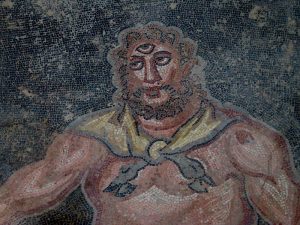WRITING AND POWER
5 min read
Writing is one of the distinctive features of mankind: the ability to fix concepts on a material support and consequently ensure their transmission, avoiding content alterations, is peculiar to the human being. It is a fundamental part of our communication and is at the base of the creation of society. As the Greek philosopher Aristotle, who lived in the 4th century B.C. wrote in his Politics, “man is a social animal”: by nature he tends to aggregate with other individuals in order to create a society.
To ensure good communication it was necessary to formulate common and shared language codes that would allow man to communicate not only with members of his own group, but also with people unrelated to it. Thanks to writing these codes are established in a more tangible way than the oral transmission of the language and they have often been imported to different linguistic contexts as a means of imposition by certain human communities on others.
Brief summary of the birth of writing and its types
Writing in general arose in organized contexts and was the key strength of states and authorities that were based on the bureaucratic system. One of its social functions is to have fixed and clearly revealed data that were previously known, but not so precisely and clearly.
In general, we can distinguish three writing systems:
• Pictographic writing system, composed of highly realistic signs that reproduce the objects to which they refer
• Logographic or ideographic writing system, in which the image used as a symbol is less realistic and more and more schematic
• Phonetic or alphabetic writing system, in which graphic signs refer to sounds that dissociate themselves from the meanings, indeed, the acquisition of meaning occurs only through the combination of signs.
The birth of writing is attributed to Sumerians, an ancient population of Mesopotamia, and it is dated back to 3300 BC with cuneiform script. The cuneiform script was later adopted by other people who were living in the region. But writing did not develop just there: indeed around the same time in Egypt they developed hieroglyphic writing. In Egyptian society the scribes were considered a privileged class representing a real elite because of their knowledge of the written language.

The first writings (such as cuneiform and hieroglyphic) were pictographic writing systems and the symbols, later, underwent a progressive simplification eventually becoming ideographic systems as the Linear A and Linear B, scripts widespread in the Mediterranean basin since 2000 BC.
The phonetic idea was already widespread in the main Mediterranean and Middle Eastern civilizations. The beginning of phonetic writing can be attributed to the Phoenicians when they imported their own writing, dated back to the 13th century B.C., into Greece. Indeed, the Greeks adapted the Phoenician writing to their alphabet and introduced new elements: the vowels. Later on, the European populations developed their own written language codes on the base of the Greek alphabet and they also drew from other alphabets that had been invented over time, first of all the Latin.
Writing, people and power
Writing was very often used as an element of discrimination against non-Western peoples who were described for what they lacked: people without state, people without history, and people without writing system. The dichotomy of written and oral forms was put in line with knowledge and ignorance.
We must remember that language is a strong identity marker. The Greeks called barbarians people who did not speak Greek, since language determined the status of being Greek or not. The Aztecs called savages who did not speak Nahuatl, the Aztec language.
An example of the use of writing for a discriminatory purpose is the case of the censuses of ethnic groups in Rwanda taken by the Belgians. Rwanda, indeed, had been placed under Belgian rule after World War I because of a mandate from the League of Nations. The two most prevalent ethnic groups in the region, the Hutu (farmers) and the Tutsi (cattlemen-warriors), were aware of each other, but had never been subjected to a census that would make them numerically evident.
Around the 1930s, Belgium began to take a census of the African populations of Rwanda. These demographic and ethnographic surveys, combined with the pseudo-scientific theories and conceptions about race of the time, led the Tutsi believe that they had a completely different racial origin than the Hutu. So this division that had always been present, but had never created friction, became immutable: on identity cards, as a sign of recognition, there was the ethnic identity. This division and the subsequent political tensions will then lead to the infamous Rwandan genocide in 1994.

An example of the instrumentalization of writing by political power can be found in China. Here, in fact, the movable type printing was invented in 1041, long before the invention of Gutenberg in 1455, but did not have the same fortune as well as technical problems, for a cultural fact.
Writing was a knowledge reserved to few, in particular for the caste of mandarins, namely the state officials, who based their power on writing, so they had no interest in spreading this knowledge because this would deprive them of authority. Actually, mandarins were not politicians, jurists or military men, but they were men of culture who had passed public competitions focused mostly on the command of the language, literary culture and knowledge of Confucianism, according to whose social hierarchy the inferior had the obligation to obey the superior.
To conclude, it is interesting to note that writing has not only been an instrument of political power but has also been exploited by religions. Those religions that had writing, among which we can count the three religions of the book, imposed themselves with greater authority and it also served to transmit codified canons and rules that were the same everywhere. In addition, it has contributed to the diffusion of the real concept of religion; for example, in many African languages there is no term for religion, there are only terms that indicate rituals. Writing has exerted a certain fascination on unlettered populations, who have found tools to define themselves thanks to it: writing creates the idea of a broader community, beyond face-to-face knowledge.

In the case of the printing press invented by Johannes Gutenberg, its wide spread can also be linked to the particular historical moment in which it took place: Europe was marked by the Protestant Reformation, which supported the personal reading of the Bible. For this reason it was necessary to spread the Bible as widely as possible, so that individuals could read it individually. Protestantism is based on the criterion of free interpretation: there is no need for the role of a Church as interpreter of revealed truths. Every believer, with the Bible in his hand, can discover the fundamental truths of faith without any mediation.
If you want to learn more, consult:
Aime M., Il primo libro di antropologia, Einaudi, Torino, 2008
Cavalieri R., Diritto dell’Asia Orientale, Cafoscarina, 2019
https://en.wikipedia.org/wiki/Rwandan_genocide
https://en.wikipedia.org/wiki/History_of_writing

Ciao, mi chiamo Martina e sono laureata in Lingue. Le mie passioni principali gravitavano da sempre intorno a letteratura, cultura, linguistica, viaggi, così ho deciso di intraprendere la strada della traduzione, specializzandomi grazie ad un Master. Adoro leggere, pratico beachvolley e amo stare a contatto con la natura.







